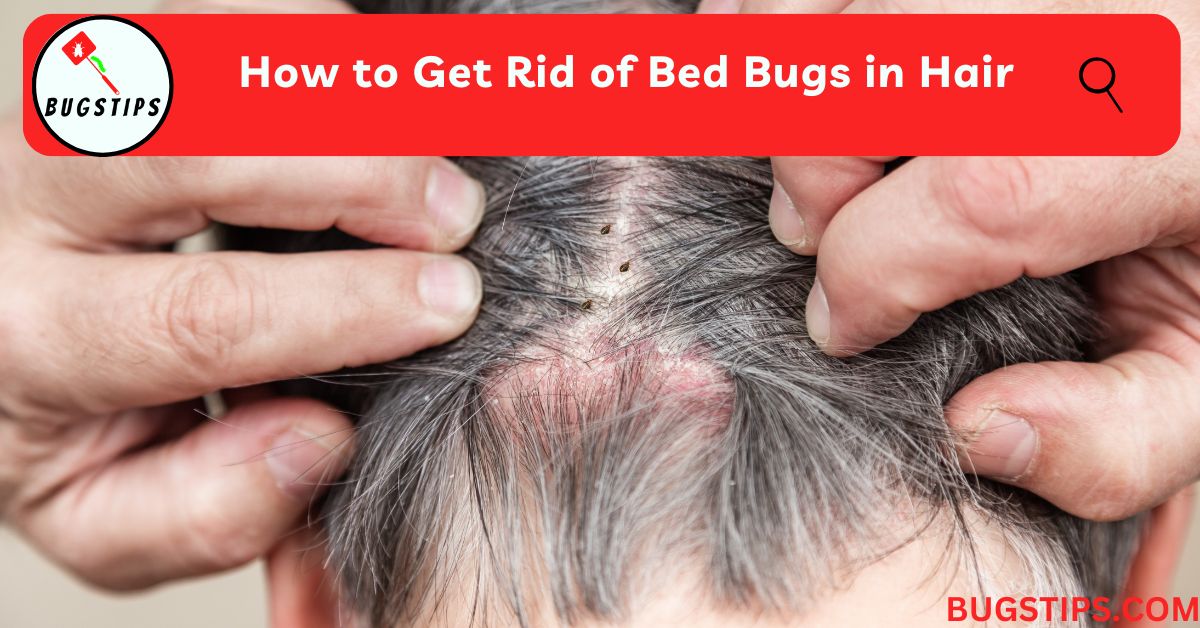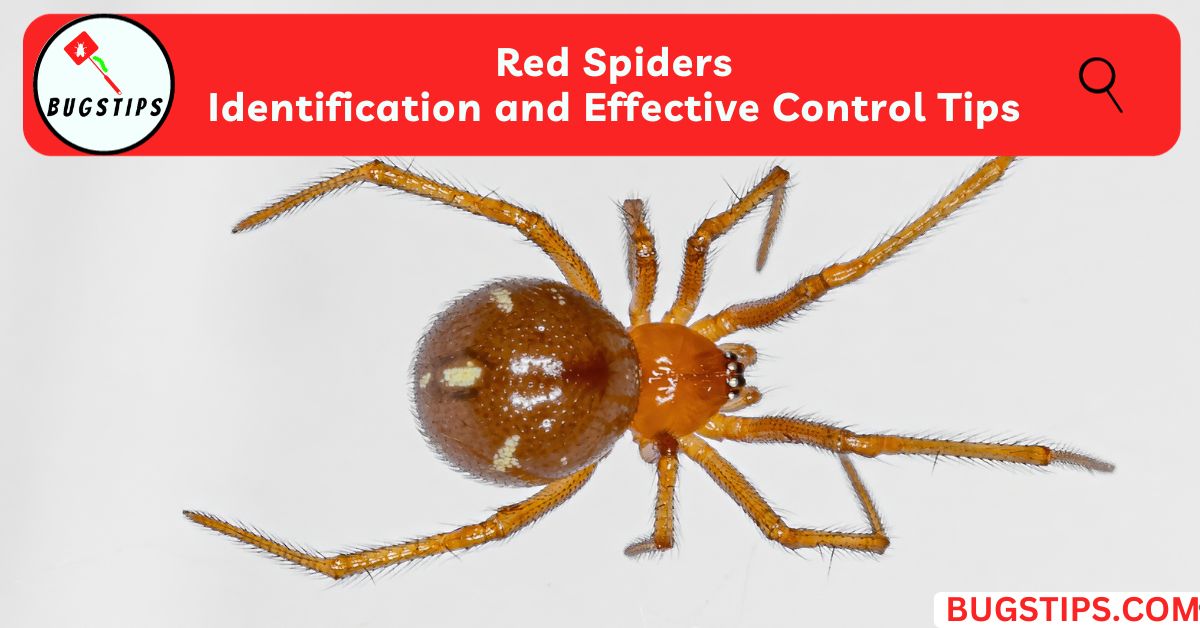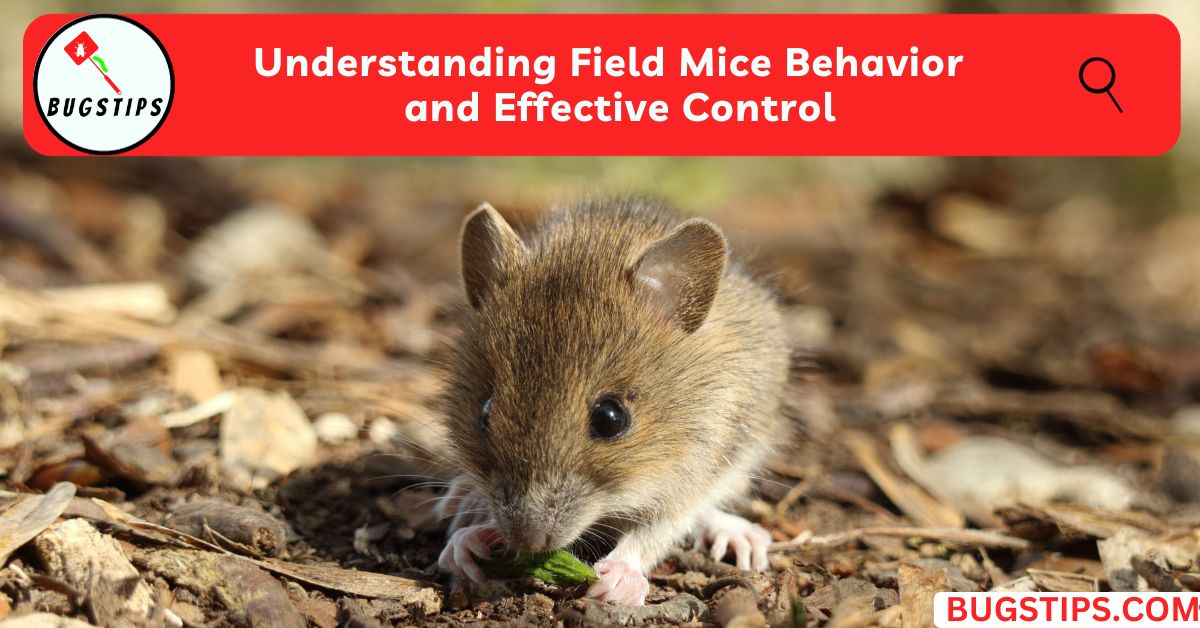This post may contain affiliate links which means as an Amazon Associate, this site may earn a small commission on qualified purchases made through links at no extra cost to you. Learn more on Affiliate Disclosure
Spider enthusiasts and curious minds alike have often found themselves asking the question, “Do spiders poop?” While it may seem like a simple question, the answer is quite complex.
Like all living organisms, spiders need to eliminate waste from their bodies. In this article, we’ll talk in detail about spider waste and answer the question, “Do spiders poop?” We’ll also explore related areas such as spider digestion, excretion, and the appearance of spider poop.
So, if you’re interested in learning more about spider waste, keep reading as we uncover the secrets of this intriguing topic.
Do Spiders Poop?
Like all living creatures, spiders need to eliminate waste from their bodies. However, the way they excrete waste is different from most animals.
While spider excretion may not resemble the typical fecal matter that we associate with other animals, they do have a process for expelling waste products. The question of whether spiders poop can be answered with a resounding yes.
You May Also Like – The Fascinating World of Earwig Poop
How Often Do Spiders Poop?
The frequency at which spiders poop can vary depending on several factors, including the spider species, its size, metabolism, and feeding habits. Generally, spiders can poop from once every few days to once every few months.
Smaller spider species that consume smaller prey or insects may eliminate waste more frequently. Since their prey provides less bulk and takes less time to digest, their digestive systems work faster, resulting in more frequent waste elimination. These spiders may poop every few days or even daily.
On the other hand, larger spider species, such as tarantulas, tend to have slower metabolisms and consume larger prey.
As a result, they produce waste less frequently compared to smaller spider species. Tarantulas may poop less frequently, with intervals ranging from several weeks to a few months.
The frequency of spider poop can also be influenced by other factors, such as the availability of food, environmental conditions, and the spider’s activity level. Spiders in captivity, for example, may have more regular feeding schedules and consequently eliminate waste more predictably.
You May Also Like – Do Spiders Feel Pain? The Truth Behind Myths
What Does Spider Poop Look Like?
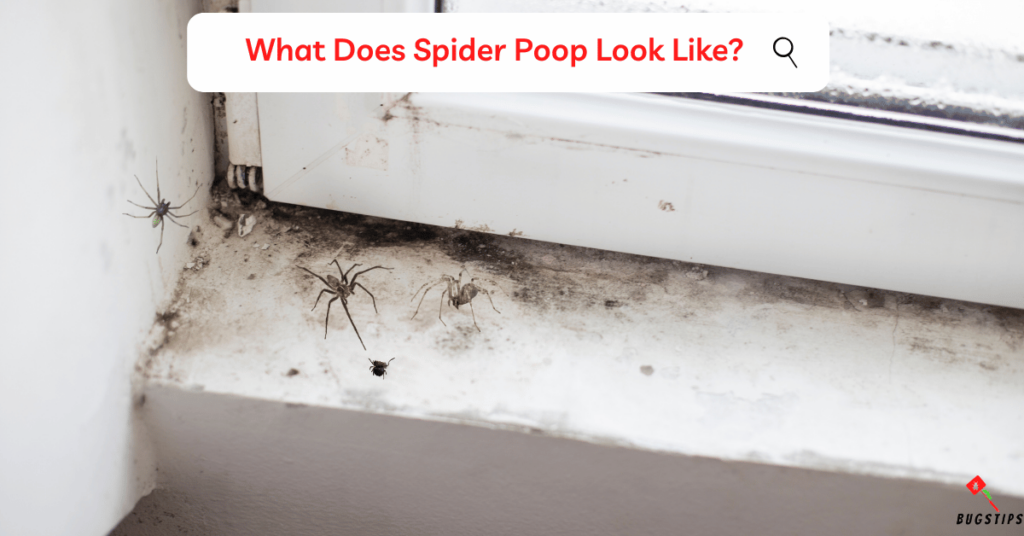
Spider poop, also known as spider frass, can vary in appearance depending on the species and their diet. While it may not be as noticeable as the fecal matter of larger animals, spider frass still holds interesting characteristics.
Spider frass often appears as small, dark droplets or pellets. These droplets are typically dry and solid, resembling specks. In some cases, spider frass may have a powdery texture or be more scattered.
The color of spider frass can also differ depending on the spider’s diet. If the spider primarily feeds on insects with dark exoskeletons, such as flies or beetles, the frass may have a darker hue.
On the other hand, if the spider consumes prey with lighter exoskeletons, the frass may appear lighter or even translucent.
How Do Spiders Poop?
Spiders have a fascinating way of eliminating waste from their bodies. Unlike many animals, they don’t have a separate opening specifically for waste elimination. Instead, spiders use a single opening called the anus and book lungs on the underside of their abdomen for waste elimination and reproductive purposes.
When spiders consume their prey, their digestive system breaks down the food into nutrients and waste products. The nutrients are absorbed into the spider’s body to provide energy and support growth, while the waste products need to be expelled.
To eliminate waste, spiders release their poop through the anus and book lungs. The poop typically takes the form of small, solid droplets or pellets.
It’s interesting to note that spiders have evolved to use the same opening for waste elimination and reproduction. This means that when spiders poop, they may also release reproductive material at the same time. This unique adaptation allows spiders to efficiently manage both waste elimination and reproduction through a single opening.
Do Spiders Poop Out Their Eggs?
Spiders do not poop out their eggs. Spiders lay their eggs in a sac or cocoon, which is usually made of silk. When the eggs are ready to hatch, the spiderlings emerge from the sac or cocoon.
These sacs are carefully crafted by the female spider to provide a safe environment for the developing spiderlings. The silk used to create the egg sacs is produced by the spinnerets and is not related to waste elimination.
The female spider deposits the egg sac in a suitable location, such as within a sheltered crevice or hidden among vegetation. She may then guard the sac or attach it to her web to keep it safe until the spiderlings are ready to hatch.
Once the spiderlings have developed and are ready to emerge from the egg sac, they will hatch by cutting through the silk barrier. At this point, the spiderlings are independent and will disperse to start their own lives.
You May Also Like – Can Spiders Swim? A Fascinating Look
Places You Can Find Spider Poop
Spider poop can be found in various places where spiders reside or hunt for food. While spider poop is often inconspicuous and goes unnoticed, there are a few places where you may come across it.
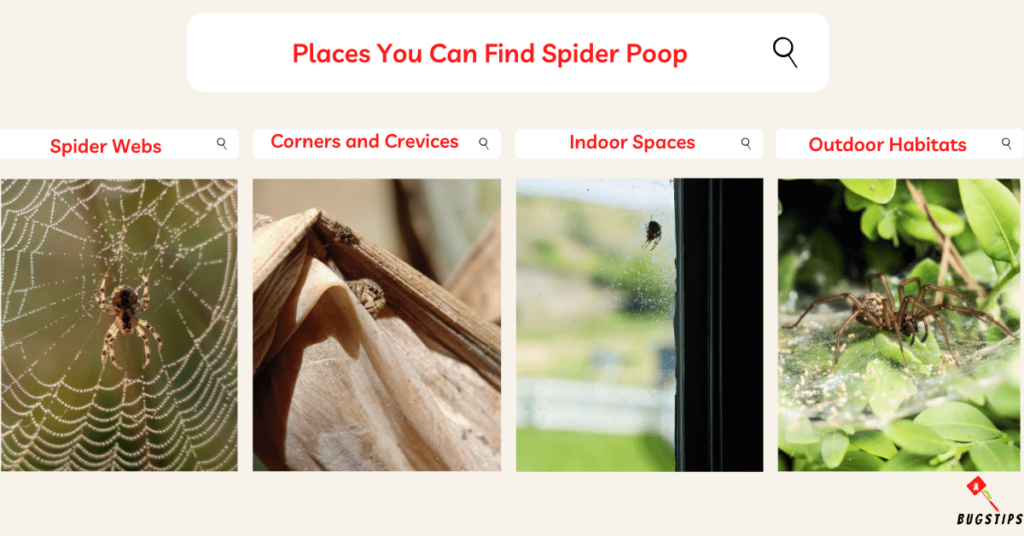
- Spider Webs
- Since spiders build their intricate webs to catch prey, you may find spider frass within the web structure itself.
- The silk strands of the web can sometimes collect and hold the small droplets or pellets of spider poop.
- Corners and Crevices
- Spiders tend to establish their homes in corners, crevices, or other secluded areas.
- These spaces provide shelter and a suitable environment for spiders to thrive.
- Over time, spider frass can accumulate in these hidden spots.
- Indoor Spaces
- Spiders may find their way into our homes, seeking shelter and potential food sources.
- If you spot spider webs indoors, especially in corners or around windows, there’s a chance you may also come across spider frass nearby.
- Outdoor Habitats
- In natural outdoor habitats, such as gardens, forests, or grassy areas, spiders build their webs in vegetation, under leaves, or between branches.
- You might find spider frass in these outdoor settings, particularly around the areas where spiders have set up their webs.
Spider frass is usually small and discreet, often blending in with the surroundings. Unless you actively search for it, you may not notice spider poop in these locations.
Related Article – How to Get Rid of Spiders Under Eaves
How Do You Clean up Spider Poop?
If you come across spider poop in your living space or other areas where you’d prefer not to have it, cleaning it up is a straightforward process.
Here’s how you can effectively remove spider poop.
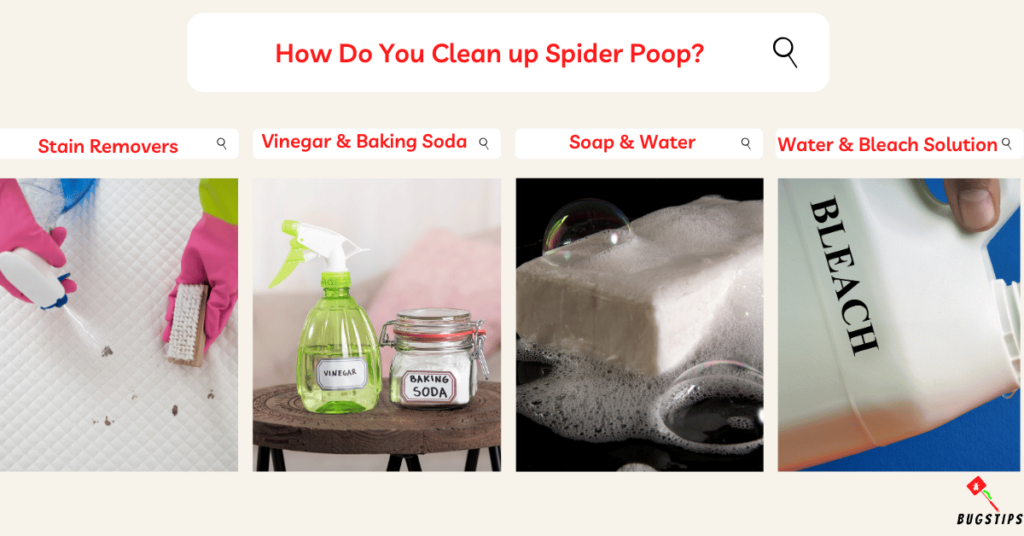
- Commercial Stain Removers
- Commercial stain removers are readily available and can be a convenient solution for removing spider poop.
- Look for stain removers specifically designed for the type of surface you’ll be cleaning.
- These products often come with instructions on how to apply them effectively.
- Vinegar and Baking Soda
- Vinegar and baking soda can create a foamy paste that works well on spider feces stains.
- Mix vinegar and baking soda to form a paste, then apply it to the affected area.
- Allow the paste to sit for a few minutes, then wipe it away with a damp cloth.
- Soap and Water
- A simple and effective method is to use soap and water.
- Fill a bucket or basin with warm water and add a small amount of mild liquid soap.
- Dip a cloth or sponge into the soapy water and gently scrub the stained area.
- Rinse the surface with clean water and dry it thoroughly.
- Water and Bleach Solution
- For tougher stains, you can mix equal parts of water and bleach to create a cleaning solution.
- Spray the solution onto the stained area and let it sit for a few minutes.
- Then, using a soft cloth, gently scrub the area to remove the stain.
- Rinse the surface thoroughly afterward to remove any residue.
Depending on the amount of spider poop, you can either use a broom or vacuum to clean it up. Regularly dusting and vacuuming your home can help reduce the presence of spider poop and keep your surroundings clean.
Related Article – Spiders in Car: How to Get Spiders Out of Your Car
Is Spider Poop Harmful to Humans or Pets?
Spider poop is generally not harmful to humans or pets. The waste produced by spiders is typically small, dry, and solid in form. It doesn’t contain any toxic or harmful substances that can pose a significant risk to human or pet health.
But it’s still important to avoid coming into direct contact with it. This is because spider frass can potentially contain bacteria or germs that may cause an allergic reaction or infection if it enters an open wound or is ingested.
If you or your pets come into contact with spider poop, it’s important to wash the affected area thoroughly with soap and water. This helps to remove any potential bacteria or germs.
Do Spiders Urinate?
Spiders do not have a urinary system like mammals or other animals. Therefore, they do not urinate in the same way we do. Spiders lack kidneys, which are responsible for filtering waste materials from the bloodstream and producing urine.
Instead, spiders have a unique excretory system called Malpighian tubules. These tubules extract waste materials, including nitrogenous compounds, from the spider’s circulatory system.
The waste is then converted into solid uric acid crystals, which are deposited in the spider’s digestive system.
The solid waste, along with other undigested materials, is eliminated from the spider’s body through the anus.
Do Spiders Fart?
Spiders do not have the physical ability to fart. This is because they do not have a digestive system that produces gas in the same way as humans and other animals.
While spiders do not fart, they can produce vibrations that may sound like farting. Some species of spiders produce sounds by rubbing their legs or abdomen together, which may create a hissing or popping noise. This sound is not caused by gas or flatulence but rather by the physical movement of the spider’s body.
Related Article – Do Spiders Make Noise? 13 Fascinating Facts
Final Thoughts
Spiders do indeed poop, and their waste elimination process is an important aspect of their biology. Spider frass is typically small, dry, and solid, and can vary in appearance and color depending on the spider’s species and diet.
While spider frass may not be harmful to humans or pets, it’s still important to avoid direct contact with it and to clean it up regularly to maintain a clean and healthy environment.
Overall, understanding how spiders eliminate waste and how to manage spider frass can help to maintain a safe and hygienic space for both humans and pets. Despite its less-than-pleasant nature, spider poop is just one of the many fascinating aspects of these amazing creatures.
FAQs
Can spiders control their excretion?
es, spiders have some control over their excretion. They can choose when and where to eliminate waste from their bodies.
Do spiders have a specific place for pooping?
Spiders do not have a specifically designated area for pooping. They eliminate waste through the same opening they use for reproductive purposes.
Is spider poop harmful to humans?
Spider poop is generally not harmful to humans. It doesn’t contain toxic or harmful substances that pose significant health risks.
What does spider poop look like?
Spider poop typically appears as small, solid droplets or pellets. The appearance can vary depending on the spider species and the type of food they consume.
How often do spiders poop?
Spiders can poop from once every few days to once every few months. The frequency of waste elimination varies based on the spider species, size, metabolism, and feeding habits.
Can spider excrement be used for any practical purposes?
While spider poop is not commonly utilized for practical purposes, some gardeners and researchers may use spider frass as a natural fertilizer or soil amendment due to its nutrient content.
How to remove spider poop from vinyl siding?
To remove spider poop from vinyl siding, you can use a commercial stain remover. Alternatively, you can create a foamy paste using vinegar and baking soda or use a water and bleach solution. Apply the chosen method to the affected area, let it sit for a few minutes, and then wipe it away with a soft cloth.
Resources – (for further reading)
Encyclopedia Britannica – Arachnid – Respiration, circulatory & reproductive systems
ProjectNoah.org – spider egg cocoon
Wikipedia – Malpighian tubule system

